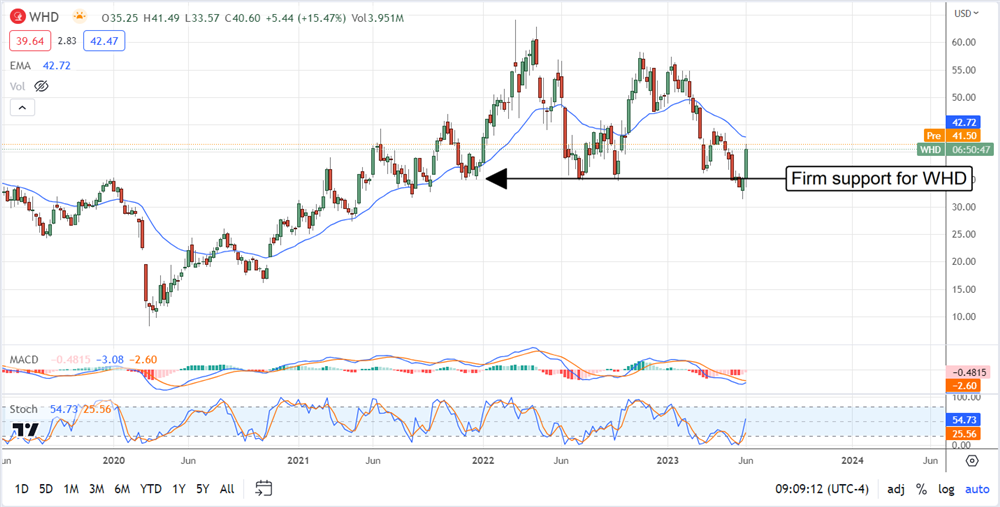
Cactus (NYSE: WHD) expected the acquisition of Flexsteel to be accretive in the first year, and the execs were more than right. The Q1 results were good enough but came with solid guidance for Q2, which is now improved. The company issued a new investor presentation outlining the company’s progress, and the progress is good.
The takeaway from the report is that more opportunities are present than previously thought, industry trends support the business outlook and cash flow is improving. This is good news for investors because it increases dividend safety and paves a path for debt reduction, which the company has already flagged as a priority.
Cactus Raises Guidance And Announces Repurchase Program
Cactus is benefiting from a shift in the oilfield that is driving and supporting a global boom in oilfield services. That shift is toward lower-cost, higher-efficiency technology spurred by the green revolution. The energy companies know they have to do whatever it takes to keep people happy to remain viable, including investments in technology. What that means for Cactus is steady demand for core services in the new Pressure Control (legacy Cactus) segment and a surge in demand for the new Spoolable Technologies segment, the legacy Flexsteel business.
The company issued favorable guidance for Q2 with the Q1 report and raised it just a month later. A surge in demand for both segments led management to increase the outlook for Pressure Control to flat to slightly up from down single digits and for Spoolable Technologies revenue of at least $105 million. That’s compared to the prior outlook of up to $105 million and 3X better than Q1. More importantly, the company expects a significant and sustained improvement in cash flow and initiated a repurchase program to prove its confidence.
Cactus’ board of directors authorized repurchases of up to $150 million. That’s worth 4.7% of the market cap and can be expected to increase over time. The increase in cash flow also allows the repayment of the debt, which frees up cash flow which could be used for dividend increases or additional repurchases. Added to an active institutional base, that’s a strong tailwind for share prices. The institutions own about 83% of the stock and have been buying on balance for the last year. Notably, their activity picked up in Q1 and accelerated in Q2, consistent with a bottom formed on the chart.
The Cactus Dividend Will Drive Value
Cactus’ dividend isn’t all that impressive at face value, about 1.1%, but it is a potential driver of shareholder value compared to its peers. The stock trades at roughly 14X its earnings toward the low end of a wide range. Peers like Halliburton (NYSE: HAL), Schlumberger (NYSE: SLB), and Baker Hughes (NYSE: BKR) trade in the range of 10X to 20X while paying higher yields that range from 2.0% to 2.5% compared to Cactus’ 1.1%. The big difference is in the amount of earnings being paid; the lightest valued stocks pay the lowest amount on a percentage basis. This means that Cactus can increase its dividend and maintain its current payout ratio of 20% or make substantial increases and raise the payout ratio to match SLB’s 30% or BKR 70% and spark a multiple expansion.
The chart is interesting because it shows a solid bottom at $35. That bottom produced a robust rebound, with the stock trading in a range, if nothing else. The bias is upward; it could easily take the market to the $50 to $55 level. That’s consistent with the analysts' consensus and may cap gains until another catalyst emerges.





